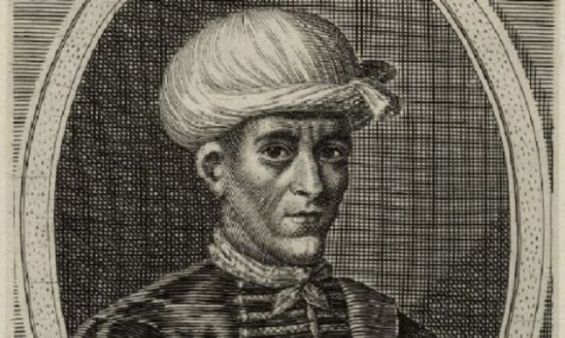In 1637, Jawdar ben Abdellah was appointed as Morocco’s ambassador to England by one of the latest Saadi sultans, Mohammed esh-Sheikh es-Seghir. Portuguese diplomat Jawdar was sent to the European Kingdom to restore Moroccan-European diplomatic relations and maintain trade with England.
In his book «Essays on Unfamiliar Travel-Writing: Off the Beaten Track» (Cambridge Scholars Publishing, Jan 6, 2017), American historian John Bulter described Jawdar Ben Abdellah as a «distinguished military man of Portuguese origins».
Jawdar «arrived at the court of Charles I in 1637, and was, like Ben Massoud before him, accorded celebrity treatment», reported Bulter. The latter indicates that the Saadi diplomat was «the first full ambassador from Morocco».
 Saadi sultan Mohammed esh-Sheikh es-Seghir./Ph. DR
Saadi sultan Mohammed esh-Sheikh es-Seghir./Ph. DR
The same idea was backed by L. P. Harvey in his book «Muslims in Spain, 1500 to 1614» (University of Chicago Press, May 16, 2005), writing that Jawdar «caused quite a stir in London society». Harvey even referred to the fact that «reports survive about him in the London Gazette», one of the official journals of record of the British government, and the most important among such official journals in the United Kingdom.
The political situation in Morocco
Away from London, and most precisely in Morocco which was partially ruled at the time by the Saadi dynasty, the reasons why Jawdar was appointed an ambassador to England were very important to sultan Mohammed esh-Sheikh es-Seghir.
Historical sources suggest that after the death of Moulay Zidan Abu Maali, known as the embattled sultan of Morocco, the Saadi dynasty was almost collapsing, having enemies inside and outside the Kingdom.
In 1613, Zidan Abu Maali’s son Abdel Malik ben Zidan ascended the throne but he was assassinated in unknown circumstances. His brother Al Walid ben Zidan reigned for five years, and just like his predecessor, was murdered by French renegades on February 1636 leaving room for Mohammed esh-Sheikh es-Seghir.
A collapsing dynasty
Es-Seghir’s reign was marked by a series of difficulties including several revolts that led later to the rise of the Alaouite dynasty in Tafilalt. Ruling over Marrakech and Fes, the sultan sought the help of European countries to strengthen his already vulnerable situation.
Surrounded by internal conflicts, Mohammed esh-Sheikh es-Seghir was counting on Jawdar to convince England’s King Charles I into helping the dying sultanate defeat its enemies.
Indeed, once in England Jawdar managed to conclude an agreement with King Charles I, prohibiting England from having trade relations with Agadir, Massa, and Essaouira, cities that were not controlled by the Saadi sultan.
 King Charles I./Ph. DR
King Charles I./Ph. DR
Signing the agreement, King Charles I promised to provide the sultan with battleships when needed, reports «Souss, the Sahara’s Gateway» a book by Abdelaziz Ben Abdellah.
According to the same source, Jawdar’s diplomatic mission has taken a dramatic turn, especially when England did not stick to the agreement’s terms and conditions.
Fearing competition, English vessels maintained business with Agadi, Massa and Essaouira which made the sultan think that his ambassador Jawdar was a traitor.
The sultan sent a different ambassador to England to question the English about the agreement they failed to respect and Jawdar disappeared completely without a trace.





 chargement...
chargement...













